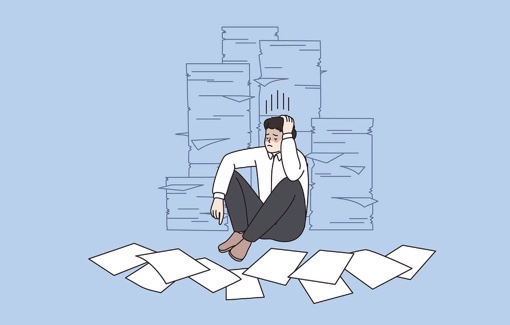How to Manage Stress So You Don’t Burn Out

The phenomenon of “burnout” is a focal aspect of the ongoing mental health epidemic. In 2019, “burnout” was added to the World Health Organization’s International Classification of Diseases. The WHO defined burnout as “a syndrome conceptualized as resulting from chronic workplace stress that has not been successfully managed.” There are three prevailing symptoms that characterize this syndrome:
- Feelings of energy depletion or exhaustion.
- Increased mental distance from one’s job; negative or cynical feelings towards one’s job.
- A sense of inefficacy and lack of accomplishment.
Burnout refers exclusively to phenomena in the occupational context and should not be applied to describe experiences in other areas of life.
Exhaustion. Cynicism. Inefficacy.
While the definition above speaks to burnout within an occupational context, it is also fitting of an educational context as well. Burnout in this latter setting is significantly detrimental for children and young adults because school is the focus of their daily lives; therefore, burnout can affect adolescents’ mental health and academic performance.
It is crucial to understand exactly what causes burnout. The current theoretical framework proposes 6 mismatches in areas of work-life that cause burnout, all of which are integral features of an educational experience:
- Workload
- Control
- Reward
- Community
- Fairness
- Values
Though experiencing burnout may feel unmanageable at times, there are ways to aid it. Personally, I resort to running to help with overwhelming feelings of burnout. There was a time in my life when I felt like I was losing myself. I not only lost motivation or energy, but also gave up and stopped caring about the things I once cared about. I felt as if I was being repeatedly pushed against a wall until it cracked. But through running, in time, I was able to regain my motivation and eventually seal the crack.
In an educational setting, sometimes there isn’t time to mend this cracked wall. Assignments are constant and so is the unyielding pressure to perform well on all of them. Ultimately, without a means of release, this crack deepens until the wall collapses. Each person’s wall is different, but each one will break if a crack is left unrepaired.
Burnout is common. As high school students, we all experience stress; this issue begs the question: how can I best manage my stress so that I don’t burn out? There is an answer that fits the unique needs of each individual. For me, that answer was turning to running; for others, it could be finding comfort in music, art, journaling, seeing friends, playing sports, etc. There are many options and burnout should not cause fissures to weaken your mental health.










